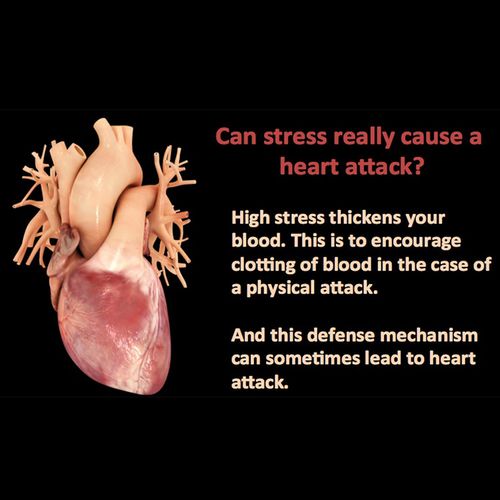Disrupted signals from the brain to the heart may be responsible for the type
of sudden cardiac death that is caused by emotional stress, according to a University College London study.
The study found that some people have problems with the system that coordinates sig. nals sent from the brain stem to different parts of the heart to control heart rhythm. These people may have a greater risk of potentially fatal heart rhythms when they're performing stressful mental tasks or during emotional events.
Researchers came to this conclusion after monitoring people with heart disease while they performed stressful mental tasks. Stress-induced changes in heart electrical currents were accompanied by uneven activity within the brain stem, they found.
"Some people are at risk of sudden cardiac death from stress, mainly people who already have heart disease. In these cases, the combination of heart and brain irregularities means heart failure could occur during a stressful or emotional event like a family gathering or even a boisterous New Year's party," says researcher Dr. Peter Taggart, of the University's Centre for Cardiology.
"Efforts to prevent the development of potentially dangerous heart rhythms in response to stress have focused on drugs which act directly on the heart, but results have so far been rather disappointing," he adds. "Our research focuses on what is happening...in the brain, when stress causes these heart rhythm problems. The results so far are very encouraging."
Don't Ignore Chest Pain—Ever!
Many people get a little chest pain once in a while. Others get a lot of chest pain too often.
Pain in the chest caused by insufficient blood and oxygen to the heart is called angina pectoris. Because angina could indicate that a heart attack is imminent, doctors consider all serious chest pain to be heart-related until proven otherwise.
Fortunately, the majority of chest pain stems from something other than arterial blockages severe enough to cause angina pectoris and a heart attack, according to the Centers for Disease Control and Prevention (CDC).
Other causes of chest pain can include…
- A pinched nerve in the neck.
- Viral inflammation of ribs and cartilage.
- Diseases of the ribs, the lungs (pneumonia, other infections, cancer, etc.) and their covering (pleurisy).
- Diseases of the breathing pipe.
- Diseases of the esophagus (food pipe).
- Chest muscle spasm.
- Muscle injury.
- Arthritis of the spine or almost any joint in the chest area.
- Diseases of the diaphragm (the muscular "tent" that separates the chest cavity from the abdominal cavity, dividing them into two airtight compartments).
If you experience chest pain, don't take chances—check with your physician.
